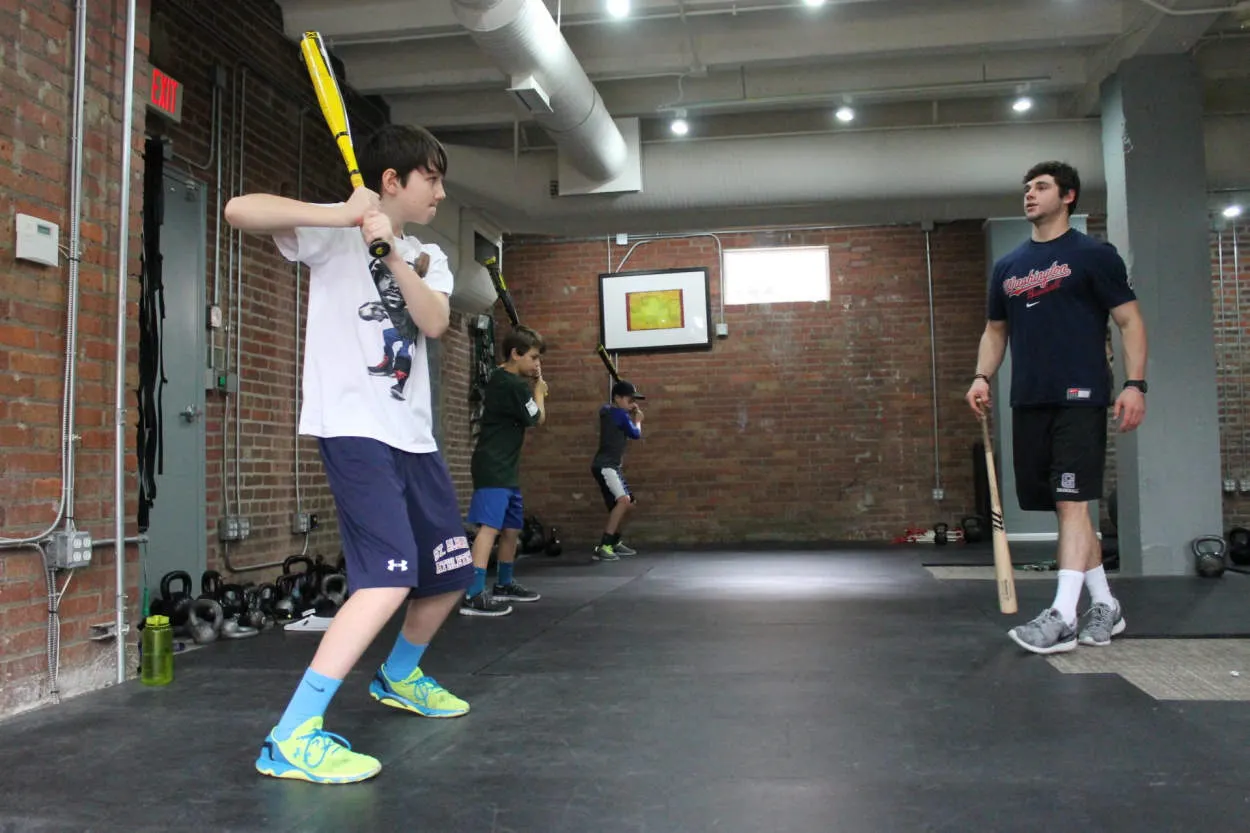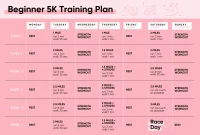In the world of sports, mastering advanced skills and techniques is the key to becoming a true champion. Whether it’s perfecting your swing in golf or honing your dribbling skills in basketball, this article explores the importance of achieving mastery in sports and the benefits it brings. Join us as we delve into the secrets of top athletes and discover how they push their limits to achieve greatness.
Technique Refinement for Experienced Athletes
In the pursuit of mastery in sports, advanced athletes must continually refine their techniques to reach new levels of skill and performance. Here are some key areas to focus on:
1. Breaking Barriers
Experienced athletes should aim to overcome their limitations and push beyond their comfort zones. This may involve incorporating advanced training methods, seeking feedback from coaches, and analyzing performance to identify areas for improvement.
2. Precision and Consistency
At this stage, athletes should strive for precision and consistency in executing their techniques. This requires honing in on the smallest details, such as body alignment, timing, and footwork. Regular practice and mindful repetition are crucial for ingraining these refined movements into muscle memory.
3. Adaptability
Experienced athletes must be adaptable to varying game situations and opponents. This involves refining the ability to swiftly adjust techniques based on evolving circumstances, such as changes in the environment, opponent strategies, or team dynamics.
4. Mental Conditioning
Mastering sports at an advanced level also requires mental strength. Athletes should focus on mental conditioning techniques, such as visualization, positive self-talk, and mindfulness, to enhance focus, manage pressure, and maintain a resilient mindset.
5. Strategic Decision Making
Advanced athletes need to develop strategic thinking skills to make quick and effective decisions on the field. This involves analyzing game situations, anticipating opponents’ moves, and utilizing techniques that maximize the chances of success.
By continually refining techniques in these areas, experienced athletes can deepen their mastery of sports, unlock new levels of performance, and inspire the next generation of athletes.
The Science Behind Elite Sports Performance
In the world of sports, achieving mastery requires more than just talent and hard work. It involves understanding the intricate science behind elite sports performance. From advanced skills to cutting-edge techniques, athletes at the top of their game utilize a combination of physical conditioning, mental strategies, and technological advancements to push the boundaries of human potential.
One of the key factors in elite sports performance is physical conditioning. Athletes undergo rigorous training programs designed to enhance their strength, speed, agility, and endurance. This includes targeted exercises, structured workout regimens, and specialized nutrition plans to optimize performance and minimize the risk of injuries.
Another crucial aspect is mental strategies. Elite athletes understand the power of the mind in achieving peak performance. They train their minds to stay focused, motivated, and resilient, even under intense pressure. Visualization, goal setting, positive self-talk, and mindfulness techniques are commonly employed to enhance mental toughness and concentration.
Technological advancements have also revolutionized elite sports performance. Athletes now have access to state-of-the-art equipment, wearable sensors, and performance-tracking tools that provide valuable insights into their performance metrics. Data-driven analysis helps them identify strengths, weaknesses, and areas for improvement, allowing for targeted training and personalized strategies.
Furthermore, elite athletes harness the power of teamwork and professional coaching. They surround themselves with a support system consisting of coaches, trainers, physiotherapists, and sports psychologists. This collective expertise helps optimize their training programs, fine-tune their techniques, and provide the necessary guidance and motivation to continuously push their limits.
In conclusion, achieving mastery in sports goes beyond natural talent and sheer dedication. The science behind elite sports performance encompasses physical conditioning, mental strategies, technological advancements, and the support of a professional team. By understanding and implementing these factors, athletes can unlock their full potential and take their performance to new heights.
Training Regimens of World-Class Athletes
When it comes to reaching the pinnacle of their sports, world-class athletes understand the importance of rigorous training regimens. These regimens are specifically designed to enhance their skills, techniques, and overall performance. Here are some key elements found in the training routines of elite athletes:
Variety of Workouts
Top athletes incorporate various types of workouts into their training regimens. This includes a combination of strength training, cardio exercises, agility drills, and sport-specific practice sessions. By diversifying their workouts, athletes can develop a well-rounded set of skills and improve their overall athletic ability.
Periodization
Another vital aspect of training for elite athletes is periodization. This technique involves dividing the training program into distinct phases or periods. Each period focuses on specific goals, such as building strength, improving endurance, or refining technical abilities. Periodization helps athletes maximize their performance by strategically planning and managing their training workload throughout the year.
Mental Conditioning
Athletes at the highest level understand the significance of mental conditioning. They incorporate techniques such as visualization, meditation, and goal-setting to improve their mental focus and resilience. By honing their mental skills, athletes can better cope with pressure, maintain motivation, and overcome obstacles during competition.
Nutrition and Recovery
A crucial aspect of any world-class athlete’s training regimen is proper nutrition and recovery. Consuming a balanced diet rich in nutrients helps athletes fuel their bodies for optimal performance. Additionally, prioritizing adequate rest, sleep, and recovery techniques such as massage, ice baths, and stretching allows athletes to minimize the risk of injuries and maximize their training gains.
Constant Evaluation and Adaptation
World-class athletes continuously evaluate their training progress and make necessary adaptations. They carefully track their performance metrics, identify areas for improvement, and work closely with coaches and trainers to refine their training plans. This commitment to self-assessment and adjustment ensures that athletes are always evolving and staying ahead of the competition.
In conclusion, the training regimens of world-class athletes encompass various elements such as diverse workouts, periodization, mental conditioning, proper nutrition, recovery strategies, and continuous evaluation. By following these principles, athletes can push their physical and mental boundaries, achieving mastery in their respective sports.
The Importance of Adaptability in Sports
Adaptability is a crucial trait for success in sports. In any competitive sporting event, athletes are exposed to various unpredictable situations and challenges that require quick thinking and problem-solving skills. Being adaptable allows athletes to effectively adjust their strategies and techniques to meet these challenges head-on.
One of the main benefits of adaptability in sports is the ability to handle unexpected changes. Whether it’s a change in weather conditions, an injured teammate, or a shift in the opponent’s tactics, being adaptable allows athletes to quickly adapt their game plan and make the necessary adjustments to stay competitive.
Adaptability also plays a vital role in enhancing an athlete’s resilience and mental toughness. It enables athletes to remain calm and composed even in high-pressure situations, allowing them to maintain focus and perform at their best. Athletes who possess adaptability are better equipped to handle setbacks and bounce back from failures, ultimately leading to improved performance.
In team sports, adaptability is essential for effective teamwork. Athletes need to be able to adapt and work collaboratively with their teammates, adjusting their roles and strategies as required. This flexibility fosters better communication and cohesion among team members, enhancing overall team performance.
Furthermore, adaptability in sports promotes continuous learning and growth. Athletes who are open to adapting and embracing new techniques, training methods, and strategies are more likely to enhance their skills and stay ahead of the competition. Embracing change and continuously seeking improvement is key to achieving mastery in sports.
In conclusion, adaptability is a crucial attribute for athletes seeking to excel in sports. Its significance lies in the ability to handle unexpected changes, enhance resilience and mental toughness, foster effective teamwork, and promote continuous growth. Athletes who embrace adaptability will not only improve their performance but also lay a strong foundation for reaching their full potential in sports.
Advanced Tools and Apps for Sports Mastery
In the journey towards mastering sports, athletes are constantly seeking ways to enhance their skills and techniques. Fortunately, there are numerous advanced tools and apps available today that can help athletes achieve their goals. These tools not only provide valuable insights but also enable athletes to track their progress and make necessary improvements. Let’s explore some of the top tools and apps that can contribute to sports mastery:
1. Video Analysis Software
Video analysis software, such as Dartfish and Coach’s Eye, allows athletes to closely examine their performances. Through frame-by-frame playback, athletes can identify areas of improvement, study opponent strategies, and perfect their technique. This tool is particularly useful for sports that require precision, such as golf, tennis, and gymnastics.
2. Performance Tracking Apps
Performance tracking apps like Strava, Garmin Connect, and MyFitnessPal enable athletes to monitor various aspects of their training. These apps track distance, pace, heart rate, and calories burned, providing athletes with valuable data to analyze and optimize their performance. Athletes can set goals, track progress, and even compete with others using these powerful apps.
3. Virtual Reality Training
Virtual reality (VR) is revolutionizing sports training by immersing athletes in realistic and interactive environments. Through VR headsets and simulators, athletes can practice in virtual stadiums, analyze game scenarios, and improve decision-making skills. VR training is beneficial for team sports like soccer, basketball, and football, where tactical awareness plays a crucial role.
4. Biomechanics Sensors
Biomechanics sensors, such as those offered by companies like Catapult Sports and Zebra Technologies, provide athletes with precise and detailed data about their movements. These wearable sensors can measure speed, acceleration, g-force, and even joint angles. By analyzing this information, athletes can identify flaws in their technique and make necessary adjustments to optimize their performance.
5. Mental Training Apps
Sports mastery goes beyond physical skills; mental strength is equally important. Mental training apps like Headspace and Calm help athletes develop focus, concentration, and resilience. These apps offer guided meditation sessions, breathing exercises, and visualization techniques that can enhance mental well-being and boost performance.
As athletes strive for sports mastery, these advanced tools and apps can act as valuable companions in their journey. From video analysis software to mental training apps, each tool serves a specific purpose in honing skills and techniques. By utilizing these resources, athletes can take their performance to new heights and achieve their goals.
Conclusion
In conclusion, mastering advanced skills and techniques in sports is crucial for athletes who want to perform at the highest level. It requires dedication, practice, and a deep understanding of the sport. By continuously honing their skills, athletes can push their limits and achieve greatness in their chosen sport.




